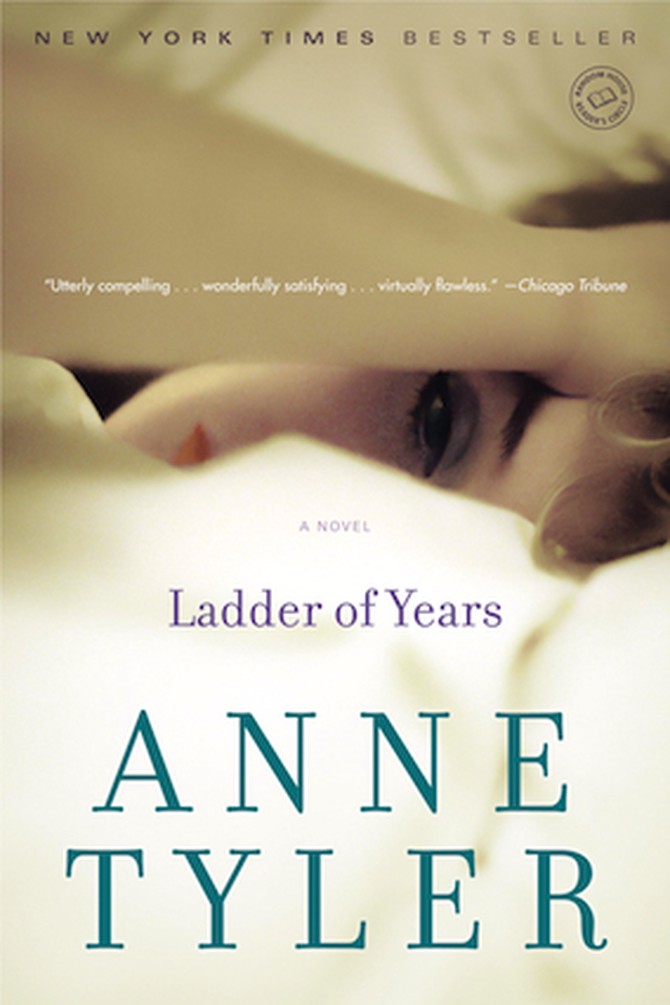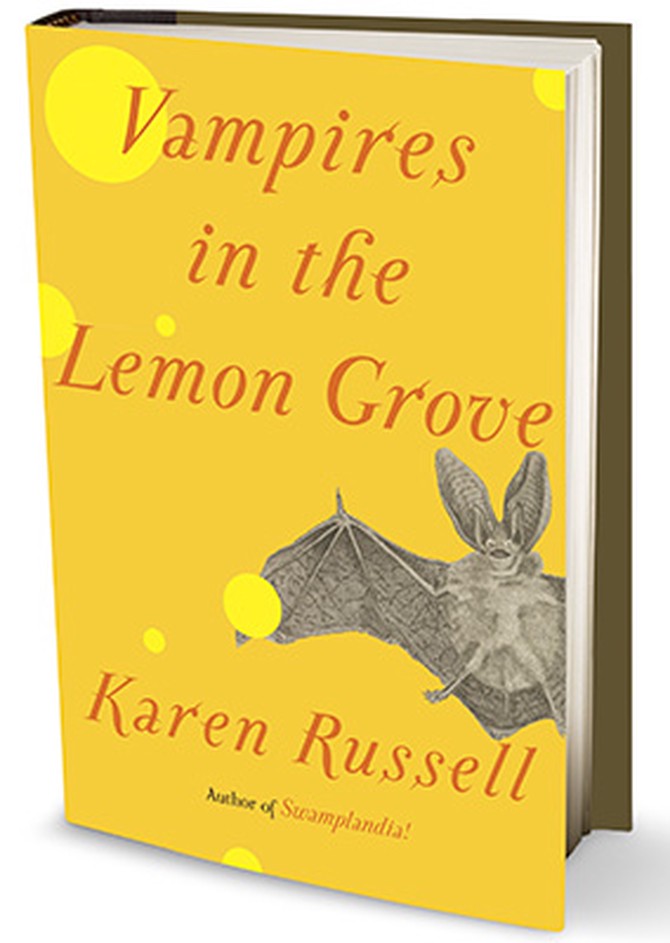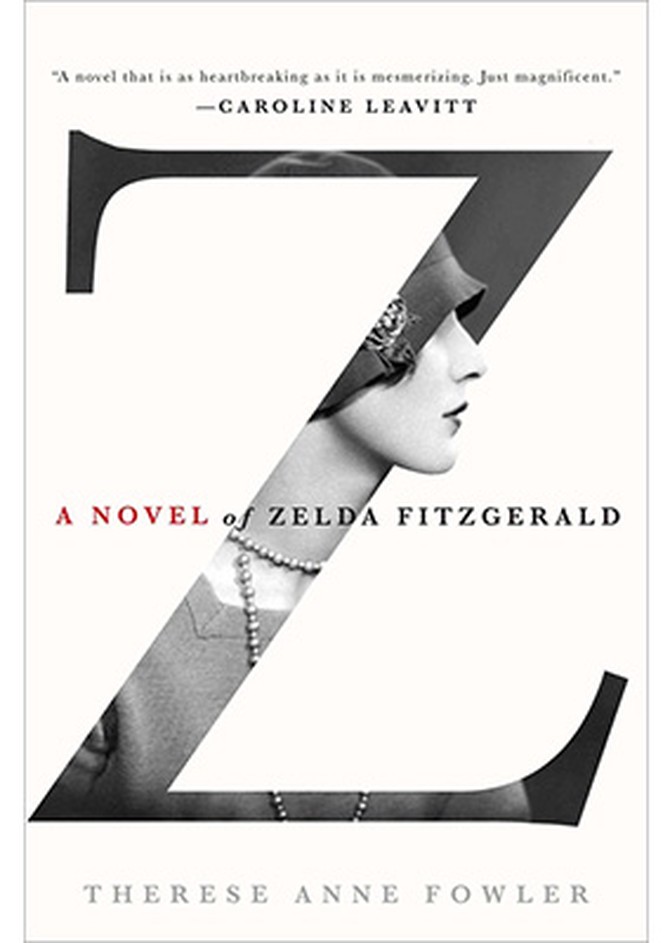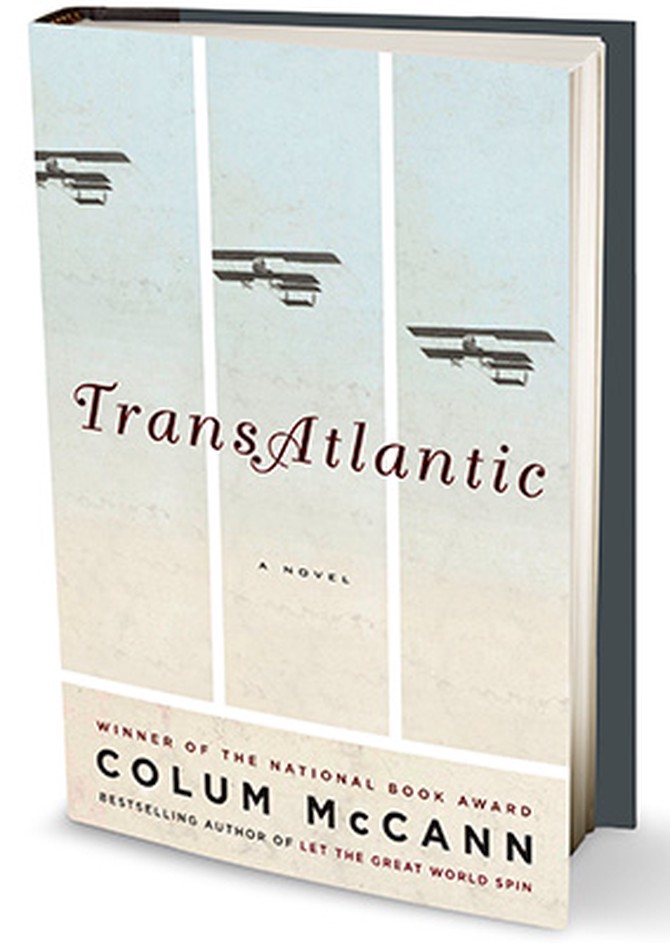The One Book O's Books Editor Wants You to Read
Finally...a smart, sly, real novel for all of us! Leigh Haber, the new head of books at O mag reveals her favorite read for this summer—plus her 4 top favorites from past issues.

Ladder of Years
By Anne Tyler352 pages; Ballantine Books
You're on vacation with your family. All year, you've wondered—where did all the fun go? Your husband, who at one time couldn't keep his hands off you, no longer seems to give you even a second glance. Your teenage kids are in full-out disdain mode. Honestly, you don't think of yourself in the same way anymore either. Was I ever all that?, you ask yourself. You want—no, you need—a change, and it needs to be something radical.
Enter Anne Tyler's novel Ladder of Years. While spending a week at the beach with her husband, three kids, siblings and assorted in-laws, 40-year-old Delia Grinstead, whose ego has shrunk to the size of an invisible speck, goes for a stroll and suddenly envisions "a map of the entire East Coast from Nova Scotia to Florida," in which she is "a dot in motion, heading south." Without advance planning, or even a change of clothes, she is soon in a car heading inland, running away from home.
She randomly alights in a dumpy small town, and gets a musty room in a boardinghouse owned by an over-sharing realtor named Belle. Tyler's genius can make the smallest, drabbest of life's details seem simultaneously exotic and cozy. Here, Delia's tiny, badly lit rented room transforms into a soothing refuge where the outdoor light shining in on her bare-bones cot is, "a slant of warm gold." When she steps into the shower that night, "Grime and sweat and sunblock streamed off her, uncovering a whole new layer of skin...The new nightgown drifted airily over her scorched shoulders." She lands a position as a legal secretary—a role she'd never have thought she was up to in real life—and rebrands herself the self-reliant, utterly efficient Miss Grinstead. Time passes. Soon it's Thanksgiving, and still she's there. Miss Grinstead's competence and independence would never be questioned.
So why does Delia's escape, which, after all, is not to Paris or to some Caribbean island, but just a short distance from her hometown, feel like such a seductive adventure in Tyler's hands? And why, by the time Delia finally goes back to her family, does she seem so different from the mousy, indecisive woman she was at the beginning of the book? She's even begun to seem...admirable.
Every time I go back to a Tyler novel—especially to this one, first published in 1996—there's something thrillingly dystopian in her inversions of domestic life. The cluelessness of her protagonists—each a sweet survivor in a world that asks way too much of them—makes reading each novel like diving under the covers of a freshly made bed; immediately, we let down our guard. Within the delicately etched universes she creates, we too can find a solitary haven to curl up in, complete with a cat who will lick but never scratch us, and a bedroom in which we can cry ourselves to sleep or read Chekhov's stories (which Delia does, deviating from her usual diet of Harlequin romances) without worrying that the light is disturbing the person next to us. Delia has to upend her entire family and embark on a complete time-life redo, before anyone even gradually begins to see her in a whole new light. We don't have to go to such extremes. Just by reading Tyler's fiction, we get to go far away, without leaving home, without anyone even knowing we've been gone.
— Leigh Haber

Leigh’s March Issue Pick:
"What Russell does with language is near supernatural."
256 pages; Knopf
Eleven former presidents are reincarnated as horses. An imprisoned girl transforms into a silkworm caterpillar, shooting thread from her fingertips. A centuries-old vampire realizes he is too anxious to fly. Each story in Karen Russell's new book, Vampires in the Lemon Grove, is more inventive than the last, juxtaposing mundane human experiences and profound questions about consciousness, love, and mortality, with a hint of the supernatural.
In "The Seagull Army Descends on Strong Beach, 1979," 14-year-old Nal harbors a crush on his older brother's girlfriend, but Russell makes this otherwise ordinary plot her own by introducing a bird that leads Nal to a hidden stash of items that have influenced his past and promise to shape his future. "Proving Up" is the tale of Miles Zegner, a young son of 19th-century homesteaders living on the Nebraska plains whose family is brought to vivid life by Russell's haunting language. When Miles sees visions of his deceased sisters rising from a plot of grass, he observes that they are "glowing taller and taller. White legs twining moonward, like swords of wheat. They sprout after dark." In many of the stories, characters confront their mortal limitations—some in physical cages, others metaphorically. As Russell's imagination soars, so does our joy in reading this collection.
— Stephanie Palumbo
Vampires in the Lemon Grove
By Karen Russell256 pages; Knopf
Eleven former presidents are reincarnated as horses. An imprisoned girl transforms into a silkworm caterpillar, shooting thread from her fingertips. A centuries-old vampire realizes he is too anxious to fly. Each story in Karen Russell's new book, Vampires in the Lemon Grove, is more inventive than the last, juxtaposing mundane human experiences and profound questions about consciousness, love, and mortality, with a hint of the supernatural.
In "The Seagull Army Descends on Strong Beach, 1979," 14-year-old Nal harbors a crush on his older brother's girlfriend, but Russell makes this otherwise ordinary plot her own by introducing a bird that leads Nal to a hidden stash of items that have influenced his past and promise to shape his future. "Proving Up" is the tale of Miles Zegner, a young son of 19th-century homesteaders living on the Nebraska plains whose family is brought to vivid life by Russell's haunting language. When Miles sees visions of his deceased sisters rising from a plot of grass, he observes that they are "glowing taller and taller. White legs twining moonward, like swords of wheat. They sprout after dark." In many of the stories, characters confront their mortal limitations—some in physical cages, others metaphorically. As Russell's imagination soars, so does our joy in reading this collection.
— Stephanie Palumbo

Leigh's April Issue Pick:
"Who doesn't love a good Zelda Fitzgerald story?"
384 pages; St. Martin's Press
A fictitious reimagining of a Jazz Age darling inspired by the real-life woman who defied her parents and societal convention to become Mrs. F. Scott Fitzgerald.
— Abbe Wright
Z: A Novel of Zelda Fitzgerald
By Therese Anne Fowler384 pages; St. Martin's Press
A fictitious reimagining of a Jazz Age darling inspired by the real-life woman who defied her parents and societal convention to become Mrs. F. Scott Fitzgerald.
— Abbe Wright

Leigh's May Issue Pick:
"O'Brien's life is as wild as her gorgeous writing."
386 pages; Little, Brown and Company
Edna O'Brien made a dramatic entrance onto the literary stage more than 50 years ago, though initially not for the reasons she'd intended. Her Country Girls trilogy of novels were deemed so scandalous for their sexual content that they were banned and occasionally burned in her native Ireland. Twenty-two books later, after dazzling readers and reviewers around the world for decades, O'Brien, now 82, finally turns her attention to her own life in the forthcoming Country Girl (Little, Brown), as dramatic as any novel.
O'Brien grew up in a village in County Clare, where the landscape was dotted with elderberry trees and primroses; the family's rambling old house was going to seed, hastened along by her father's alcoholism and financial troubles. Her mother was a religious woman whose distrust of "the written word" meant there were few books available to read, though that didn't stop young Edna from beginning to scribble stories by age 8. After attending convent boarding school, she moved to Dublin, where she worked behind a pharmacy counter and discovered James Joyce, T.S. Eliot, Leo Tolstoy. She was brainy, talented and beautiful, and she socialized with poets, playwrights, and artists. She got pregnant, married, and had two sons, then moved to London and eventually divorced. Her circle widened to include a rogues' gallery of brilliant admirers—Samuel Beckett, Robert Mitchum, Richard Burton, Marlon Brando and Paul McCartney. (Did she or didn't she? You'll have to read the book to find out.) Through it all, she wrote.
O'Brien always swore she wouldn't publish a memoir, but a few years ago she changed her mind.
— Leigh Haber
Read Leigh's interview with Edna
Country Girl
By Edna O'Brien386 pages; Little, Brown and Company
Edna O'Brien made a dramatic entrance onto the literary stage more than 50 years ago, though initially not for the reasons she'd intended. Her Country Girls trilogy of novels were deemed so scandalous for their sexual content that they were banned and occasionally burned in her native Ireland. Twenty-two books later, after dazzling readers and reviewers around the world for decades, O'Brien, now 82, finally turns her attention to her own life in the forthcoming Country Girl (Little, Brown), as dramatic as any novel.
O'Brien grew up in a village in County Clare, where the landscape was dotted with elderberry trees and primroses; the family's rambling old house was going to seed, hastened along by her father's alcoholism and financial troubles. Her mother was a religious woman whose distrust of "the written word" meant there were few books available to read, though that didn't stop young Edna from beginning to scribble stories by age 8. After attending convent boarding school, she moved to Dublin, where she worked behind a pharmacy counter and discovered James Joyce, T.S. Eliot, Leo Tolstoy. She was brainy, talented and beautiful, and she socialized with poets, playwrights, and artists. She got pregnant, married, and had two sons, then moved to London and eventually divorced. Her circle widened to include a rogues' gallery of brilliant admirers—Samuel Beckett, Robert Mitchum, Richard Burton, Marlon Brando and Paul McCartney. (Did she or didn't she? You'll have to read the book to find out.) Through it all, she wrote.
O'Brien always swore she wouldn't publish a memoir, but a few years ago she changed her mind.
— Leigh Haber
Read Leigh's interview with Edna

Leigh's June Issue Pick:
"You feel as if you're soaring along with his McCann's language"
320 pages; Random House
On a gusty afternoon in 1919, two World War I veterans nose their plane into the air, headed east from Newfoundland, pitching across rivers of tailwind and blizzard before crash-landing in a bog in Ireland for the world's first successful transatlantic flight. The navigator furtively carries a letter, given to him by a teenage girl, in his coat pocket. From this thrilling opening, National Book Award winner Colum McCann weaves an intricate tapestry that illuminates the anguish of Irish history and the deeper agonies of war.
TransAtlantic reads as a series of interconnected novellas, shifting between decades, among an unlikely cast of richly drawn characters, initially foregrounding the men: aviators Brown and Alcock; Frederick Douglass, seeking support from Irish abolitionists on the eve of the potato famine; Senator George Mitchell, brokering a tenuous peace between Catholics and Protestants. But McCann's narrative truly soars when he brings in four generations of Irish women—Lily, Emily, Lottie and Hannah. As he fleshes out their hopes and horrors, TransAtlantic gains altitude and velocity, its stories lifting and intersecting, the unopened correspondence a talisman passed from one generation to the next. At its heart the novel is profoundly antiwar, shaking its fist at needless bloodshed. "When you get up to sit with God or the devil you can curse them both for me," Lily muses to the corpse of her slaughtered son. "This god-awful manufacture of blood and bone. This fool-soaked war that makes a loneliness of mothers." Reminiscent of the finest work of Michael Ondaatje and Michael Cunningham, TransAtlantic is Colum McCann's most penetrating novel yet.
— Hamilton Cain
Next: 10 dazzling debut novels to pick up right now
TransAtlantic
By Colum McCann320 pages; Random House
On a gusty afternoon in 1919, two World War I veterans nose their plane into the air, headed east from Newfoundland, pitching across rivers of tailwind and blizzard before crash-landing in a bog in Ireland for the world's first successful transatlantic flight. The navigator furtively carries a letter, given to him by a teenage girl, in his coat pocket. From this thrilling opening, National Book Award winner Colum McCann weaves an intricate tapestry that illuminates the anguish of Irish history and the deeper agonies of war.
TransAtlantic reads as a series of interconnected novellas, shifting between decades, among an unlikely cast of richly drawn characters, initially foregrounding the men: aviators Brown and Alcock; Frederick Douglass, seeking support from Irish abolitionists on the eve of the potato famine; Senator George Mitchell, brokering a tenuous peace between Catholics and Protestants. But McCann's narrative truly soars when he brings in four generations of Irish women—Lily, Emily, Lottie and Hannah. As he fleshes out their hopes and horrors, TransAtlantic gains altitude and velocity, its stories lifting and intersecting, the unopened correspondence a talisman passed from one generation to the next. At its heart the novel is profoundly antiwar, shaking its fist at needless bloodshed. "When you get up to sit with God or the devil you can curse them both for me," Lily muses to the corpse of her slaughtered son. "This god-awful manufacture of blood and bone. This fool-soaked war that makes a loneliness of mothers." Reminiscent of the finest work of Michael Ondaatje and Michael Cunningham, TransAtlantic is Colum McCann's most penetrating novel yet.
— Hamilton Cain
Next: 10 dazzling debut novels to pick up right now
Published 06/10/2013

